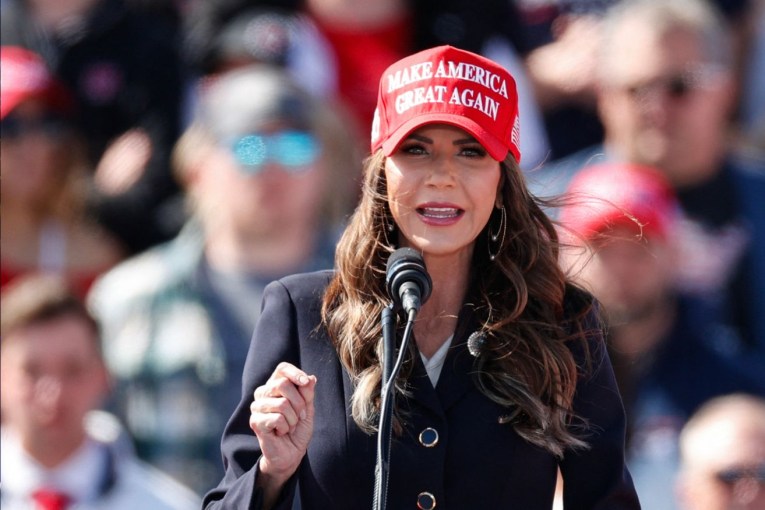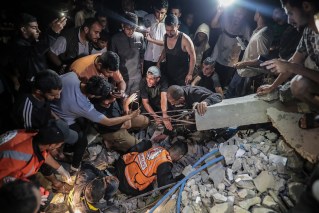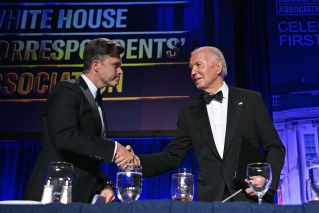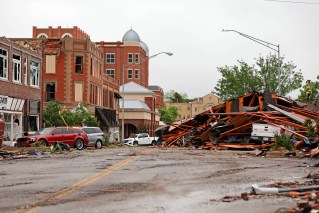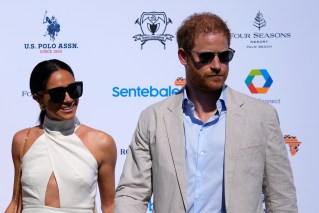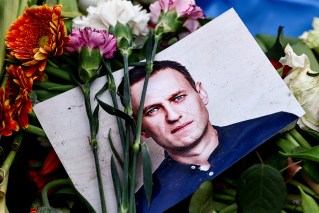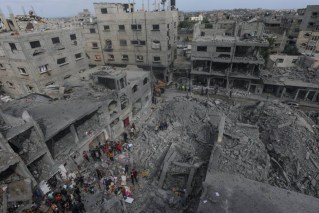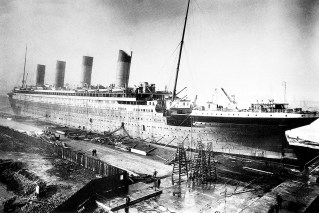Russia tests nuclear missile
Russia has carried out a successful test of its new Bulava intercontinental nuclear missile and will perform two more test launches in October and November, the head of its naval forces said.
The 12-metre long Bulava, or ‘Mace’, has undergone numerous tests, some of which have failed, causing setbacks for the project that aims to be the cornerstone of Russia’s nuclear arsenal over the next decade.
• Aust ‘can train Ukraine officers’
• Renewed fighting hits Ukraine
Naval Commander-in-Chief Admiral Viktor Chirkov said the test launch had been carried out from the White Sea and that the test missile had hit its target in Russia’s far east.
“In October and November of this year, the naval fleet will carry out two more launches with two rocket cruisers equipped with ballistic missiles,” Interfax quoted Mr Chirkov as saying.
A Bulava missile weighs 36.8 tonnes and can travel 8,000 kilometres and hold six to 10 nuclear warheads.

Ukraine president Petro Poroshenki. Photo: Getty
Russia’s armed forces have boosted their military training and test drills since the start of the conflict in eastern Ukraine, which Russia considers in its traditional sphere of influence.
However, Russia looks to have removed most of its forces out of eastern Ukraine and back onto Russian territory, raising hopes for the peace process, according to Ukraine’s president Petro Poroshenko.
Mr Poroshenko said the bulk of Russian troops had been withdrawn from the country.
“According to the latest information I received from our intelligence headquarters, 70 per cent of Russia’s forces have been removed,” he told a cabinet meeting.
“This further strengthens our hope that the peace initiatives have good prospects.”
Russia has denied sending any troops into eastern Ukraine in support of pro-Russian separatists battling Kiev’s forces there, despite what Ukraine and the West say is overwhelming evidence to the contrary.
Moscow has also denied arming the separatists.
President Vladimir Putin on Wednesday accused Western countries of creating the Ukrainian crisis and using it to revive NATO.
“The crisis in Ukraine, which was basically provoked and created by some of our Western partners, is now being used to revive this military bloc (NATO),” Mr Putin said at a government meeting.
The removal of Russia’s military forces came as Amnesty International reported both Ukrainian forces and pro-Russian separatists had committed war crimes in the conflict in eastern Ukraine.
At a news conference in Moscow, Amnesty’s secretary-general, Salil Shetty said the group had documented evidence of crimes on both side.
“Amnesty international has called the conflict in Ukraine an international conflict and Russia a party to that conflict,” he said.
Drones to be used to monitor ceasefire
The Organisation for Security and Cooperation in Europe (OSCE) says it will deploy drones to monitor the ceasefire in Ukraine.
“Discussions are underway on possibilities of integrating, as soon as possible, national drones as an in-kind contribution by participating states in the… monitoring scheme,” Swiss president and current OSCE chairman Didier Burkhalter, said.

Separatist militants in Ukraine. Photo: Getty
“OSCE-owned drones will also be deployed soon,” he said, adding the expansion of its ceasefire monitoring mission in eastern Ukraine would help the organisation assess developments.
Mr Burkhalter said last week’s ceasefire agreement “marks a real opportunity to finally reverse the logic of escalation”.
At an OSCE forum in Prague Mr Burkhalter said the security watchdog was prepared to facilitate dialogue between Russia and Ukraine, including hosting a meeting on the presidential level.
He said the ceasefire in Ukraine should be allowed more time to produce a political dialogue before more sanctions are imposed on Russia.
“The question has to be… is it a timely situation now for announcing new sanctions or does it make the fragile situation more fragile?
“I’m sure a reasonable way in the situation would be to give more chance to the process, that means to the ceasefire to be respected and the process to be started in the direction of a real political process.”
Meanwhile, Russian defence minister Sergei Shoigu has blamed Ukraine for the downing of Malaysia Airlines flight MH17, saying the tragedy would never have happened if Kiev had not taken up arms.
“The catastrophe happened in the air space belonging to Ukraine, which bears full responsibility for what happened,” he was quoted as saying by Interfax news agency.
The Dutch Safety Board on Tuesday released a report saying MH17 broke apart over Ukraine due to the impact from a large number of fragments.
